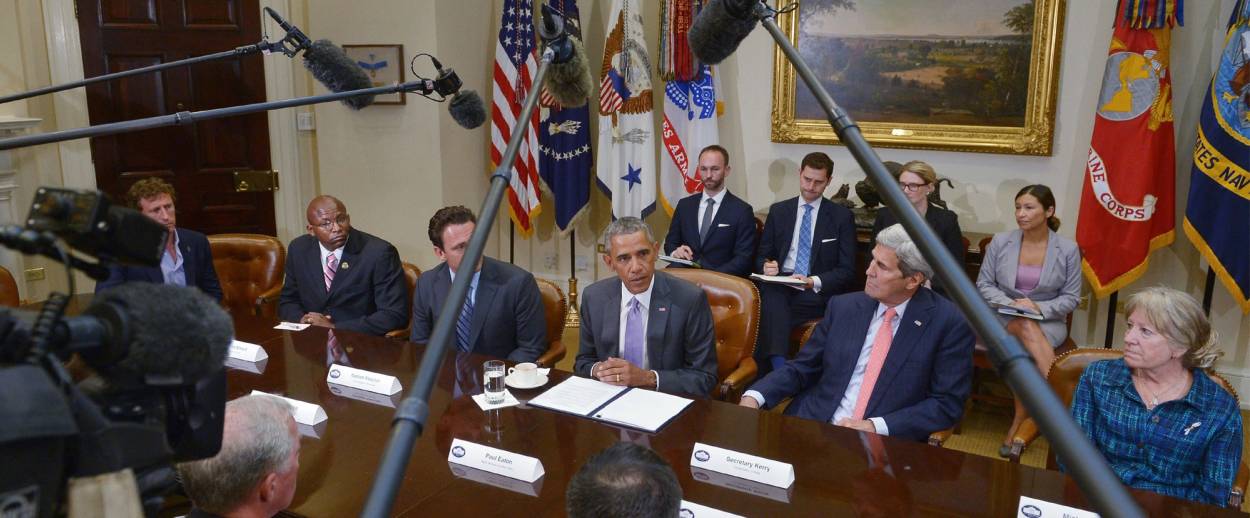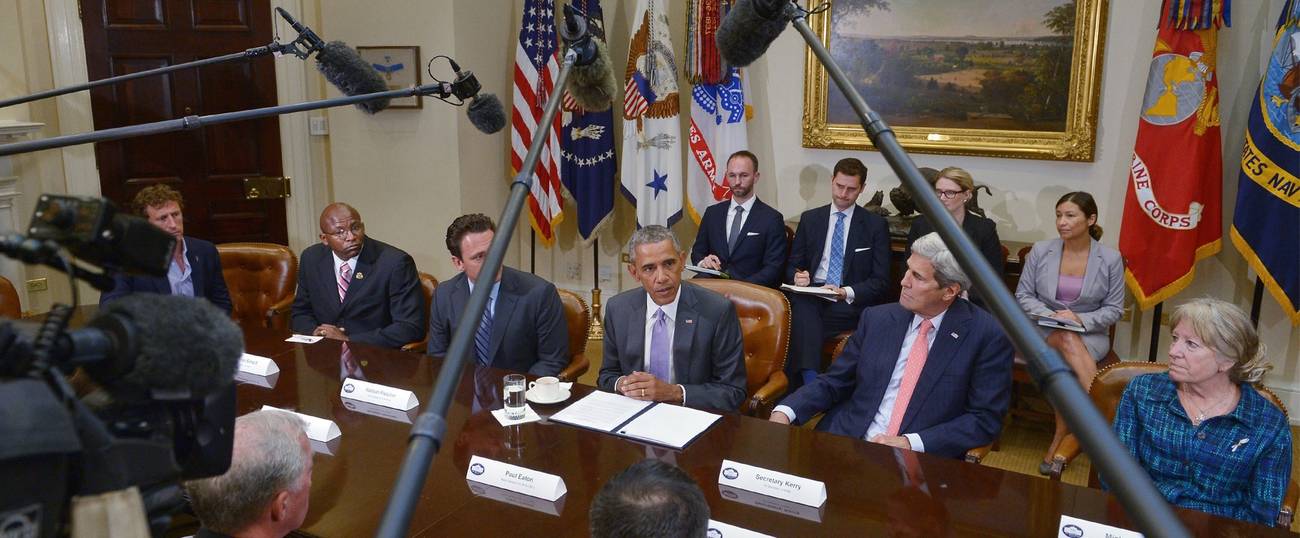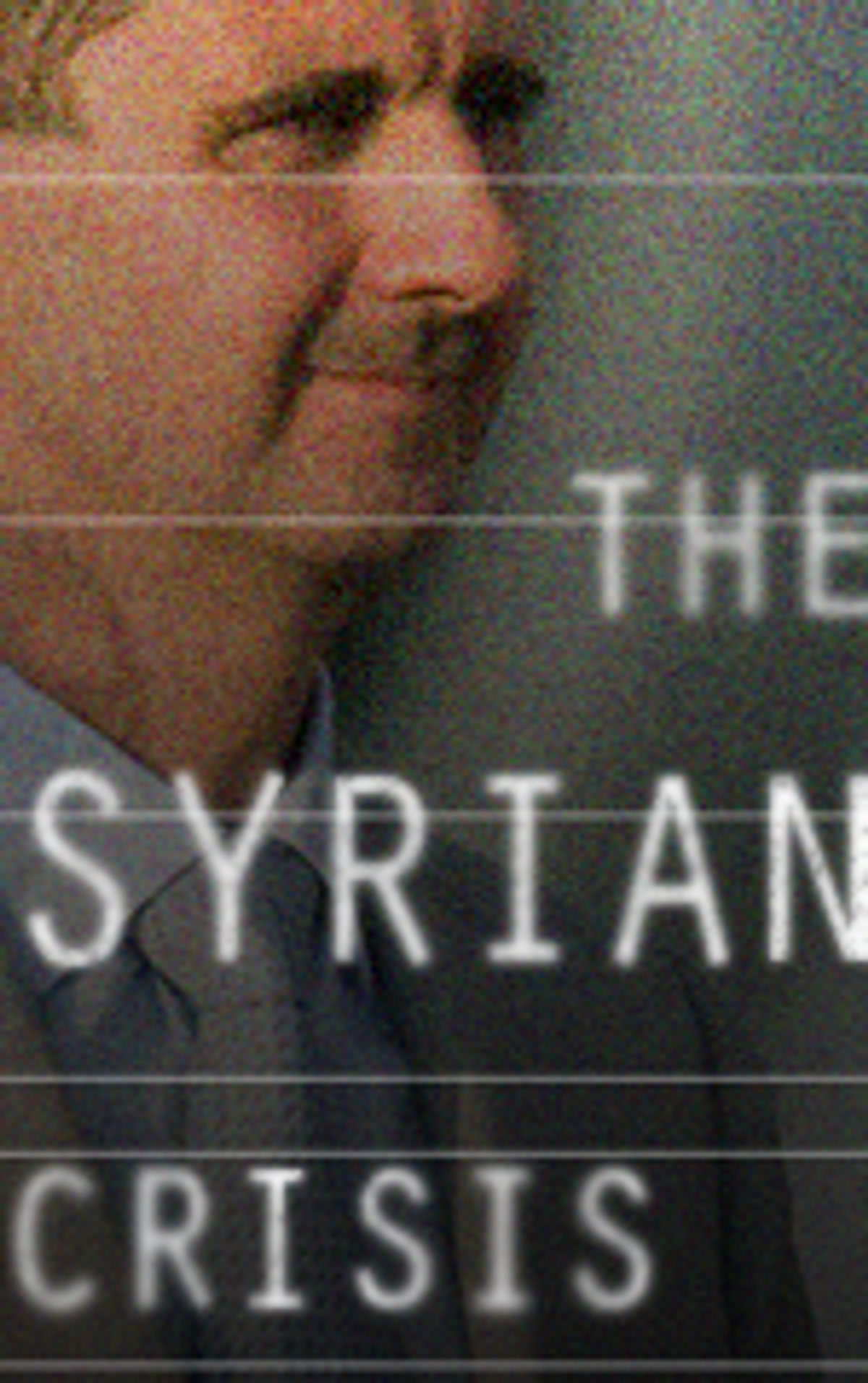America Makes a U-Turn in the Middle East
Obama’s long game is a complete restructuring of the balance of power in the region—but with what results?




The administration of President Barack Obama seldom missed an opportunity to insist that the alternative to the Iran nuclear deal was a war with Iran, a prospect that has now presumably been kicked further down the road. Middle Easterners are not so lucky: They get to fight their wars with Iran right now.
Where America stands on the question of the wars that Iran is fueling across the Middle East has been obscured to some extent by outdated expectations, diplomatic niceties, and deliberate smoke-screens. But it would be wrong to take pro forma statements about America’s alliances with old friends like Turkey, or Saudi Arabia, or Israel at anything like face value. The first thing the Obama Administration did following the recent burning of the Saudi embassy and consulate in Iran by a state-sponsored mob was not to condemn this assault on a longtime U.S. ally. Rather, the White House immediately launched a media campaign pushing the message that the problem was actually Saudi Arabia, and, as anonymous U.S. officials suggested on background, maybe it was time to reconsider America’s regional alliances.

Yet the president has actually been explicit about his dislike for the old American order in the Middle East. The “old order that had been in place for 50 years, 60 years … was unsustainable, and was going to break up at some point.” Obama proclaimed at a DNC event in 2014. The new order, he added, was not born yet. Earlier that same year, Obama was more explicit still about his intention to realign the United States away from its old alliances: “I think change is always scary. I think there was a comfort with a United States that was comfortable with an existing order and the existing alignments, and was an implacable foe of Iran.” Washington’s traditional “partners in the region,” the president made clear almost two years ago, were going to have to “adapt to change.”
The foundation of the new American-approved security framework was the recognition and respect of what Obama refers to as Iran’s “equities.” This translated into legitimization of Iranian spheres of influence throughout the region, especially in Iraq and Syria. For Obama, this recognition of Iran as a regional pillar worked on several levels, especially as it was in accord with the president’s clearly broadcast aversion to military intervention. Elevating Iran’s regional position provides the president with the possibility of establishing an alternative security structure, one that no longer relies on U.S. military power.
Obama has repeatedly described the foundation as well as purpose of this new structure as establishing “equilibrium” between “the Shiites”—which, for Obama, means Iran—and “the Sunnis,” primarily meaning the Saudis. But this was effectively meaningless. In practice, Obama was looking for Iranian cooperation on key regional issues in order for him to shrink the American military footprint in the region. However, the president needed a mechanism that would, in one fell swoop, reduce tension with Iran and open the door to pursue cooperation in other areas. This, in short, is the purpose of the Joint Comprehensive Plan of Action.
Indeed, the administration’s sales pitch for the deal encouraged the promise of closer cooperation on regional affairs. In an interview in August of last year, Secretary of State John Kerry emphasized precisely the prospect of regional collaboration with Iran: “If we can get this deal done, then we’re ready to sit down and talk about the regional issues, and we may be able to work things in different places.”
Elevating Iran’s regional position provides the president with the possibility of establishing an alternative security structure, one that no longer relies on U.S. military power.
Yet while Obama may hope for convergence, Iran has naturally been seizing the opportunity to leverage U.S. support to advance its own regional interests, which happen to run squarely against the traditional American alliance system. Even more fundamentally, Iran is a revolutionary actor, whose expressed objective is to overturn the existing order and replace it with Iranian hegemony.
True to form, the Iranians used their recent seizure of the U.S. Navy boats and their crew on the day of the State of the Union address two weeks ago to underscore this point, both to the United States and to its traditional regional allies. The newspaper Kayhan, a mouthpiece for Supreme Leader Ali Khamenei, ran a telling headline about the detention of the sailors, describing the episode as, “the humiliation of the godfather of the Gulf emirates.” The message is clear: Iran is manhandling America with impunity. Allies and clients of the United States have been put on notice.
Iranian impunity is not a function of Iran’s actual military power vis-à-vis the United States. Rather, it emanates from the Iranian understanding that Obama wants to extricate the United States from the region, has no interest in maintaining the old American order, and is therefore willing to recognize Iran’s position at the head of the regional table. Hence, the administration has found itself repeatedly acting as Iran’s lawyer, excusing and justifying its behavior, legitimizing its ambitions, and instead lashing out at old regional allies. These dynamics, which the administration set up in order to cooperate with Iran, were codified in the JCPOA and give Iran substantial leverage to determine the terms of the U.S.-Iranian relationship. Insofar as Obama has made the nuclear deal and cooperation with Iran his signature, legacy-setting policy, the United States must act as Iran’s advocate in the region, lest the deal and the promise of cooperation collapse. Sustaining the deal with Iran and gaining its cooperation in the region therefore requires the United States to downgrade traditional allies like Israel, Saudi Arabia, and Turkey, which are in direct conflict with Iran throughout the region, in Iraq, Lebanon, Syria, and Yemen.
Because there is nothing very appealing to most Americans about the prospect of making a pro-Iranian U-turn in U.S. foreign policy, Obama has sought cover for this policy with the conceit of “fighting extremism,” namely ISIS. The president’s pitch is that American allies should put aside their concern with Iranian expansionism and instead cooperate with Tehran to fight the “real” danger facing the region and the world: Sunni extremism. As the president explained: “What’s possible is you start seeing an equilibrium in the region, and Sunni and Shia, Saudi and Iran start saying, ‘Maybe we should lower tensions and focus on the extremists like [ISIS] that would burn down this entire region if they could.’ ” Predictably, the Iranians understand the implications of Obama’s slogan and have integrated lines such as the priority to “fight extremism” and “combat terrorism” in their messaging—with the added caveat that this effort cannot succeed “without Iran.”
But the benefits of the cover of the anti-ISIS campaign extend beyond mere propaganda to real cooperation in Iraq and Syria, as well as Lebanon. In Iraq, the United States not only backs a government deeply penetrated by Iran, but also actively cooperates with Shiite militias run by the Army of the Guardians of the Islamic Revolution (IRGC). A similar set-up, albeit on a much smaller scale, exists in Lebanon, where the United States is providing support to the Lebanese Armed Forces (LAF), which act as an auxiliary force in support of Hezbollah, the Lebanon-based long arm of the IRGC. The collaboration is such that the administration has used the LAF to indirectly pass on intelligence that has benefited Hezbollah. The pretext is the same: fighting ISIS and (Sunni) extremism.
In Syria, the White House has used the ISIS issue in order to force a shift in priorities in line with Iranian preferences and objectives. After retreating from its position that Bashar Assad must go, the administration is now working to compel its old regional allies and the rebel forces they support in Syria to effectively surrender and adopt its agenda: stop all operations against Assad and focus instead on fighting ISIS. Hence, under this pretext, the administration is pressuring Turkey to shut down its border, including a strip north of Aleppo vital to continued logistical support for rebel groups that are fighting Assad, the Iranians, and ISIS. Simultaneously, the administration is working with the Syrian franchise of the PKK, which is fighting against Turkey.
The “combating ISIS slogan” has proved useful to Iran’s Russian partners as well, as they are cynically using it while actually targeting all anti-Assad rebel factions and civilians alike.
The result of this policy is that Iran is allowed to protect its “equities” in Syria, as President Obama put it, while Washington’s former allies are pressured to recognize and come to terms with an Iranian victory in Syria at the negotiating table in Geneva.
If Iran turns out to be a force of peace that brings order and stability to the region, and in the process relieve the United States of that task, saving it the cost of wars in the Middle East, then the president’s gamble will have paid off big time. The thing is, there is no evidence whatsoever that such a scenario is transpiring or will transpire in the future. One is hard pressed to find any precedent for a forced integration of a revolutionary power with hegemonic ambitions in an existing structure, with which it is in direct conflict, and which it explicitly seeks to overturn.
Moreover, Iran’s projection of influence in the region is structurally dependent on destabilizing factors and assets—namely, sectarian militias that dominate weak states with fractured societies. Preserving the bridge for Iran’s presence in the eastern Mediterranean, for example, is predicated on sustaining a minority dictatorship in Syria, whose continuity in turn is based on the permanent subjugation by force of the Sunni Arab majority. And so, protecting Iranian “equities” in Syria means, by definition, the perpetuation of war, continued support to Hezbollah, and a continued flow of refugees into neighboring states and Europe.
Put differently, the people of Syria will continue to die and flee in large numbers. Only with the president’s Iran policy, the United States is now actively cooperating with the actor most responsible for their death and misery.
***
Like this article? Sign up for our Daily Digest to get Tablet Magazine’s new content in your inbox each morning.
Tony Badran is Tablet’s news editor and Levant analyst.